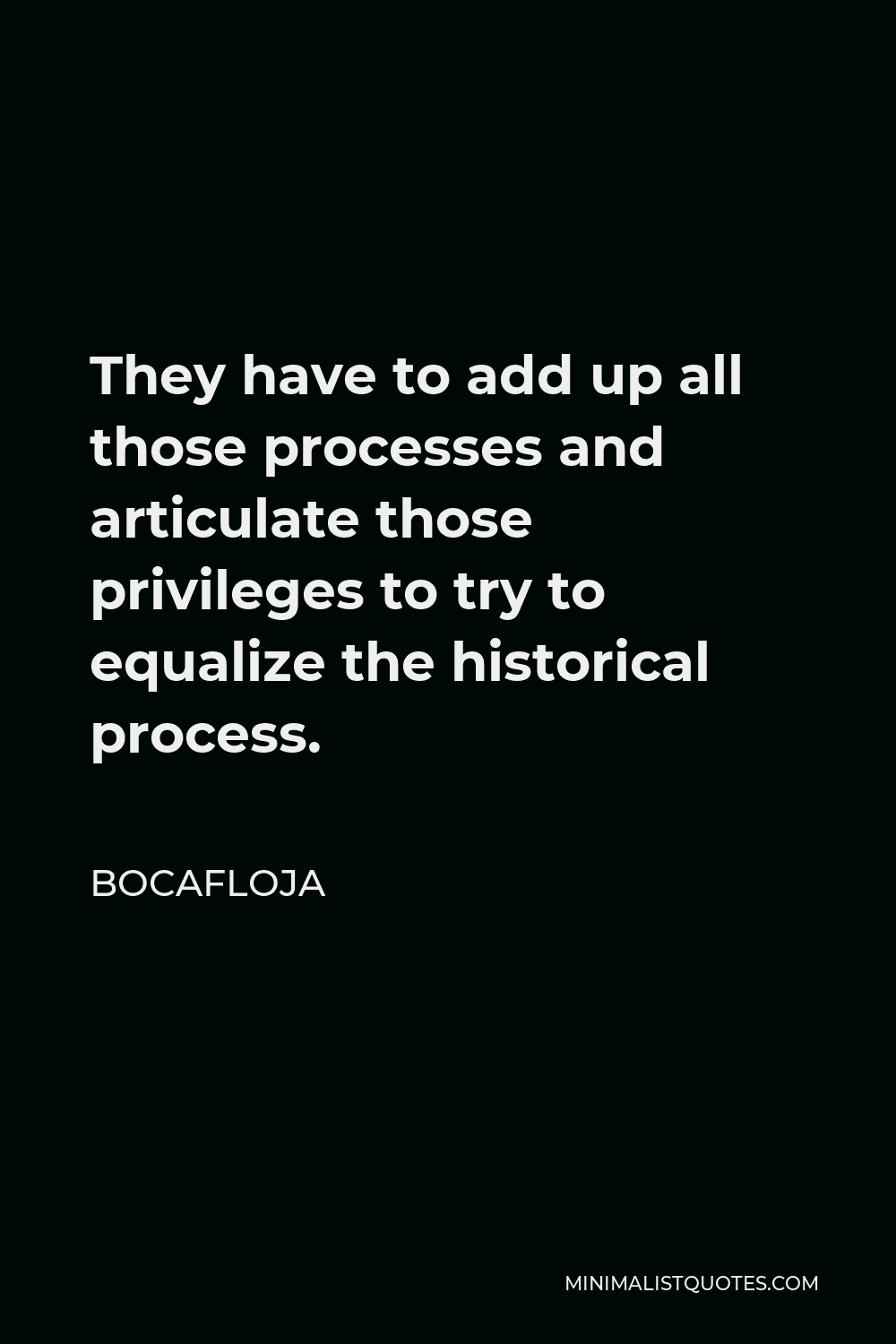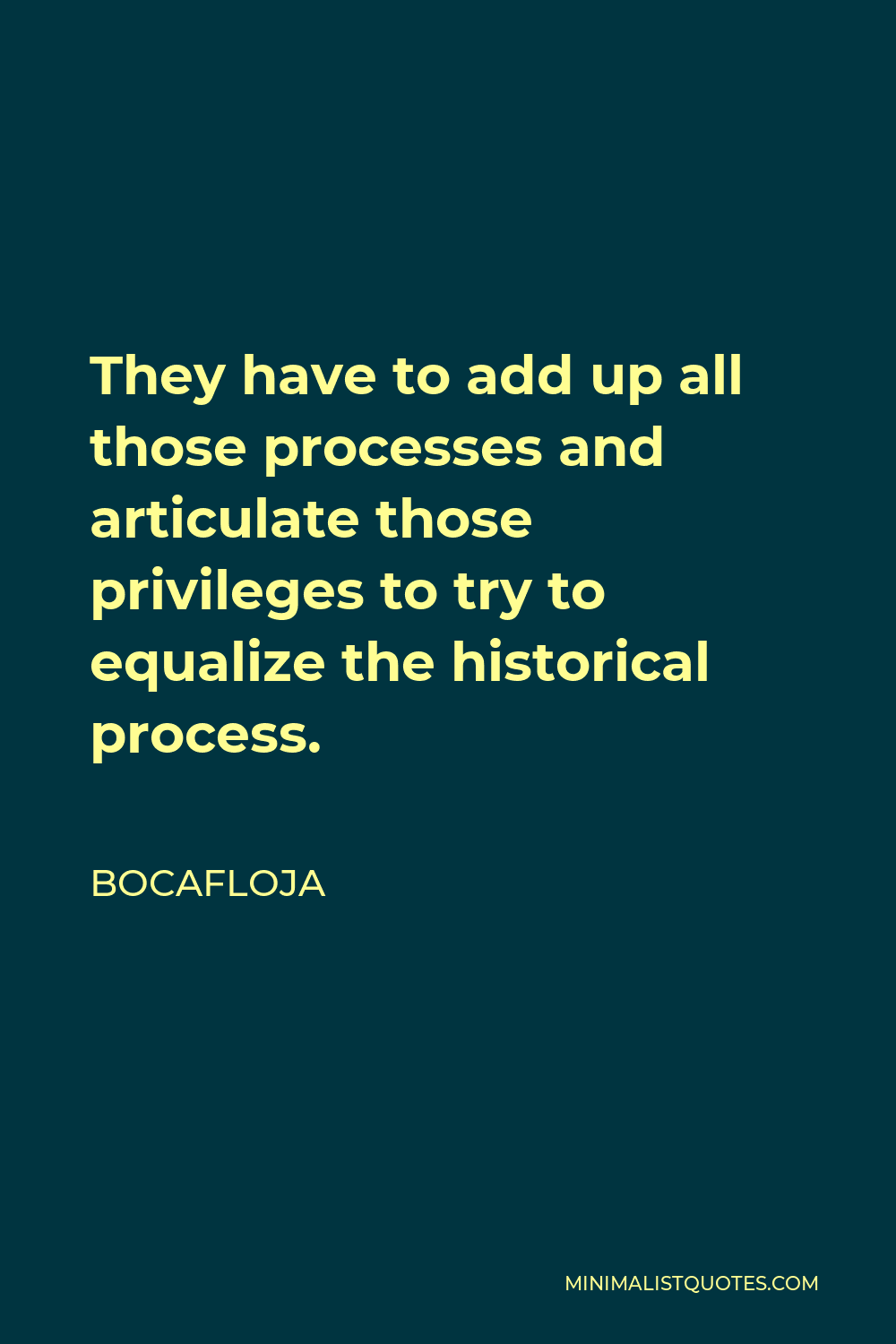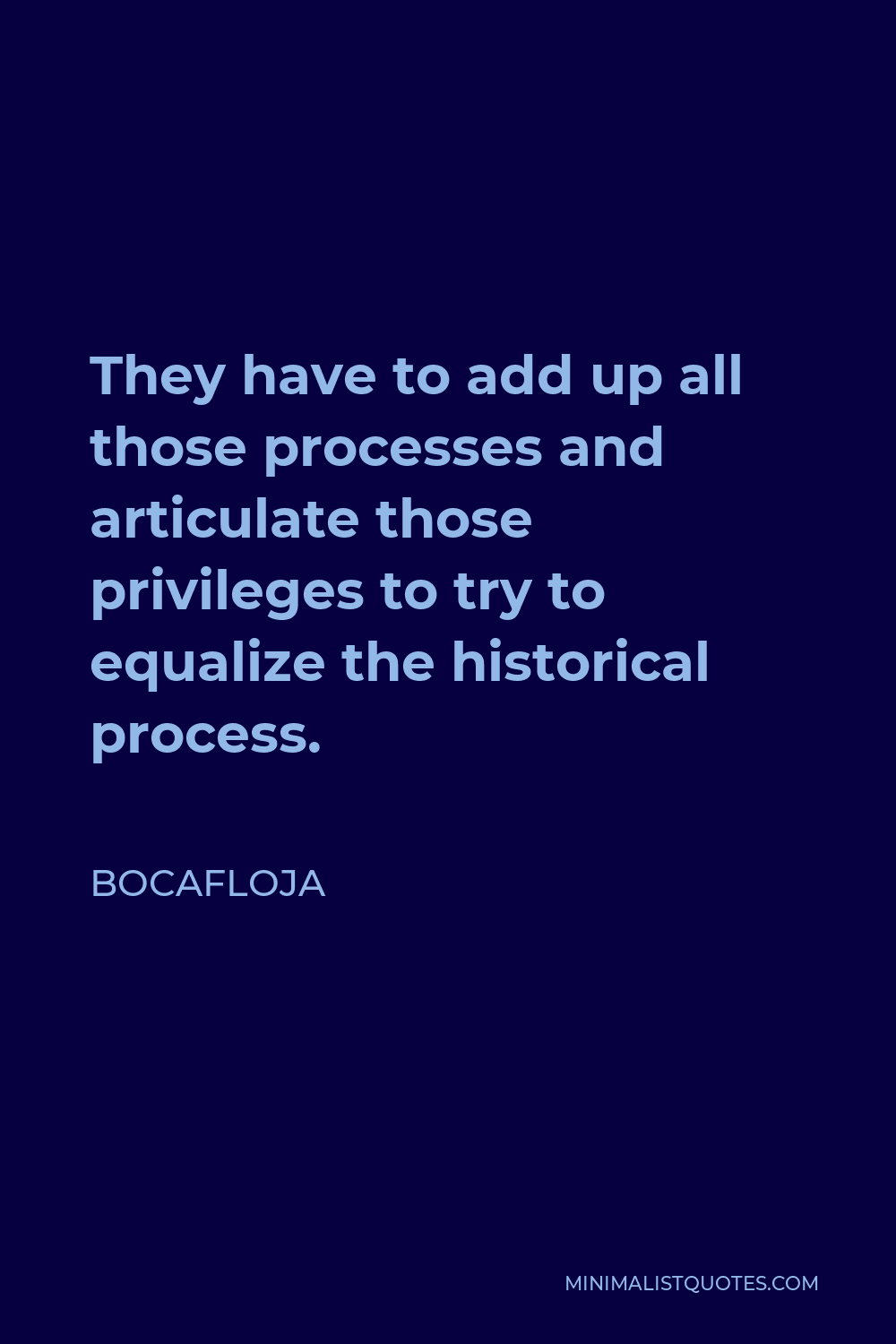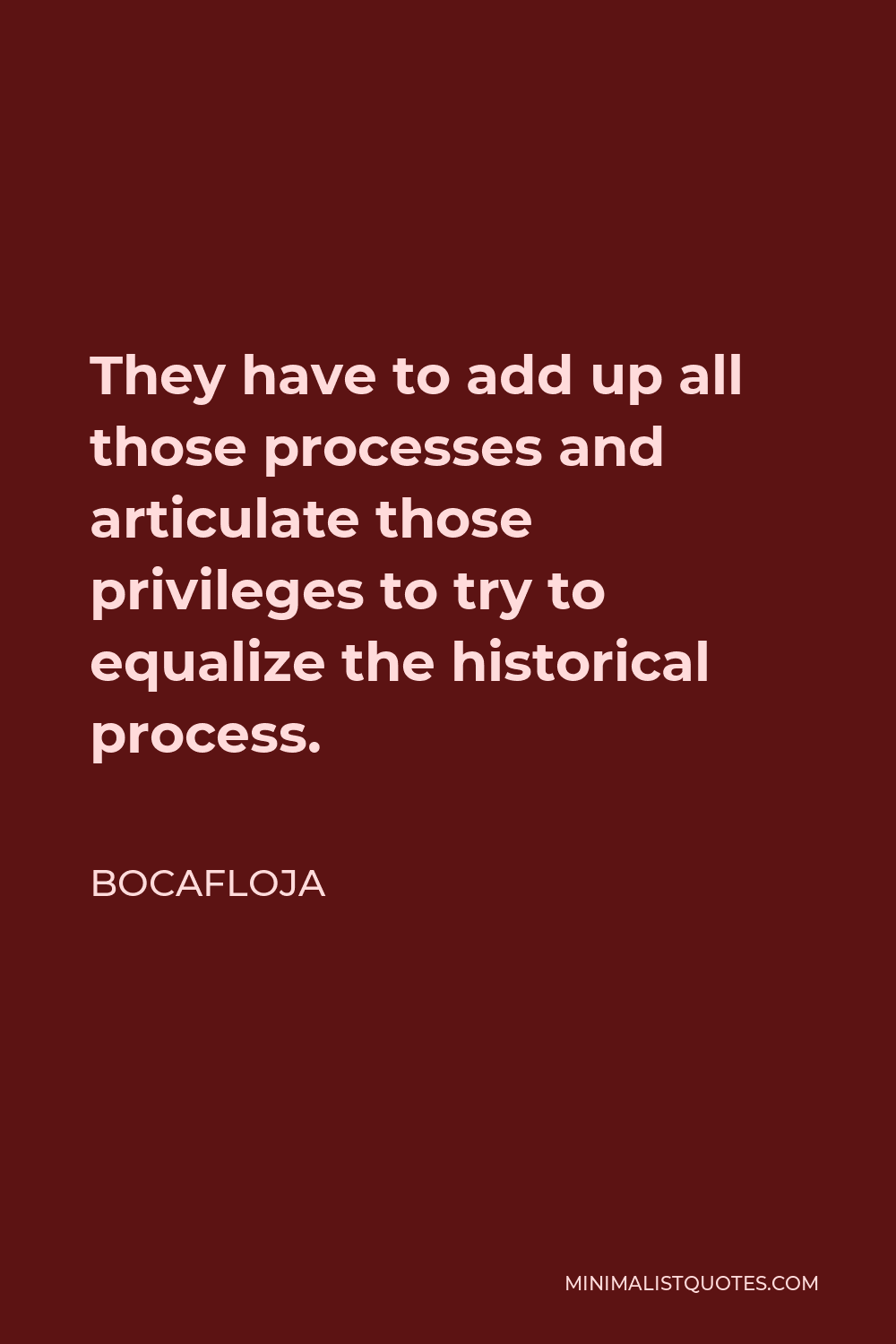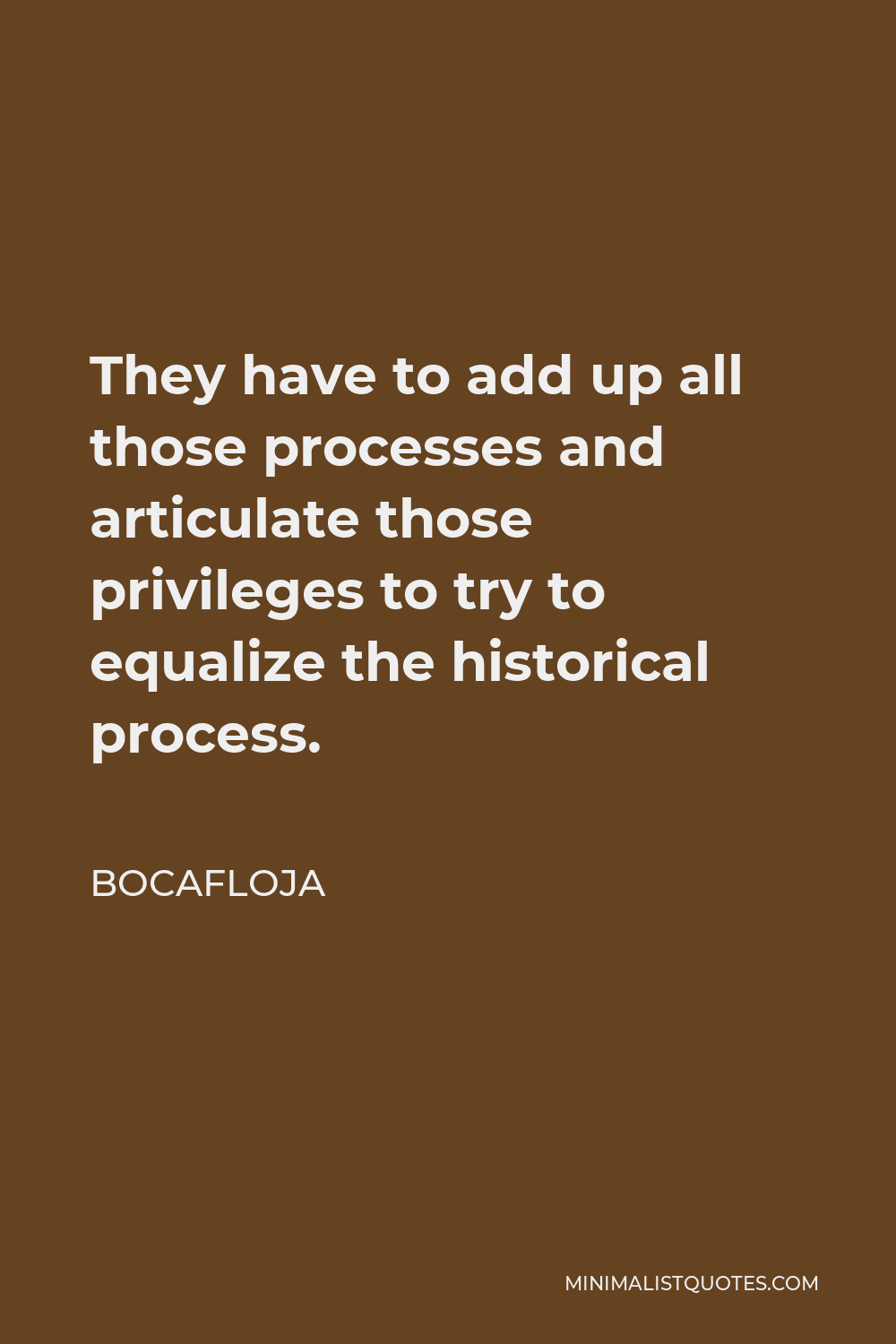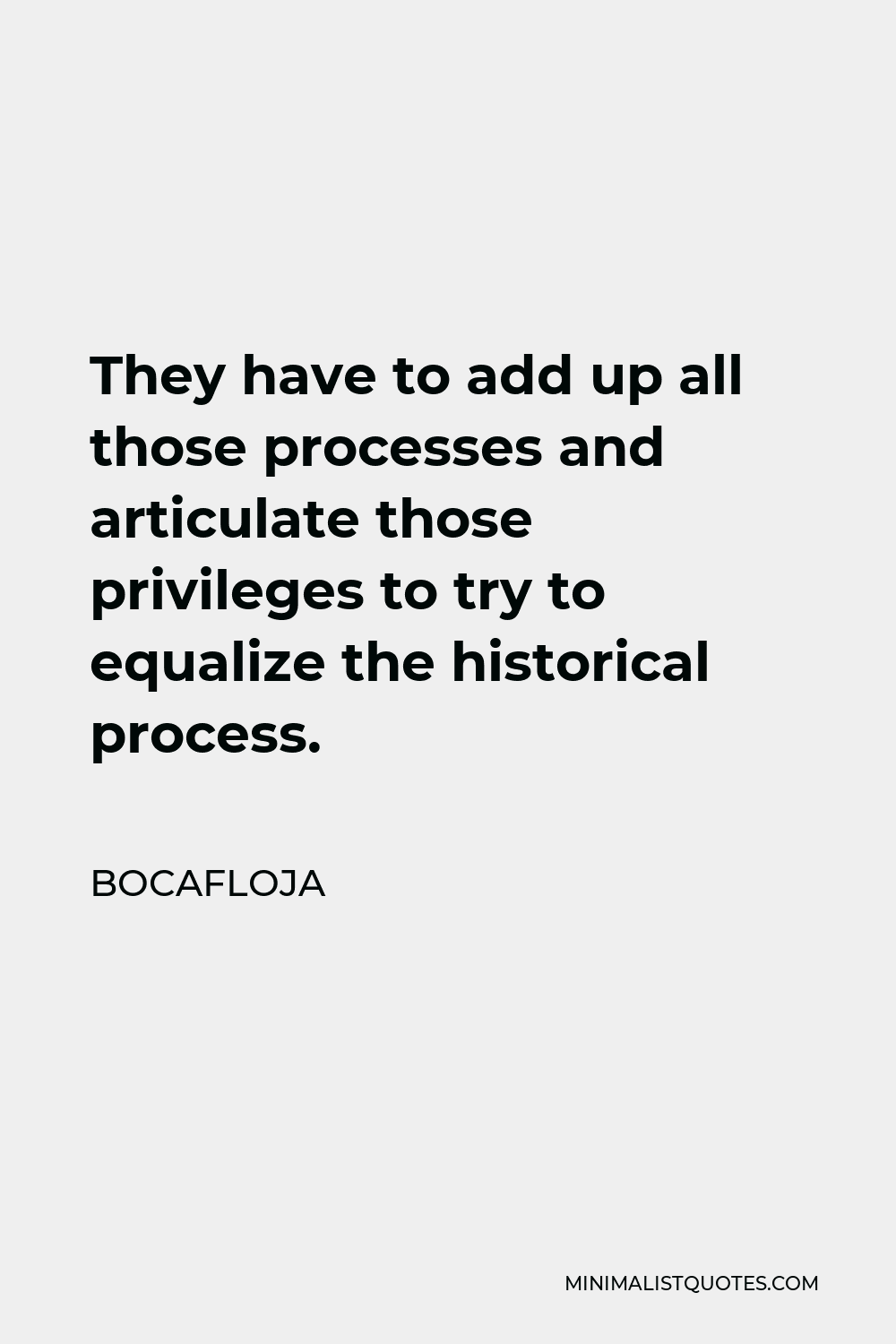And those families for generations have maintained themselves in positions of power. Latin America founded itself on everyone being equal, but in reality we aren’t.
BOCAFLOJAThey have to add up all those processes and articulate those privileges to try to equalize the historical process.
More Bocafloja Quotes
-





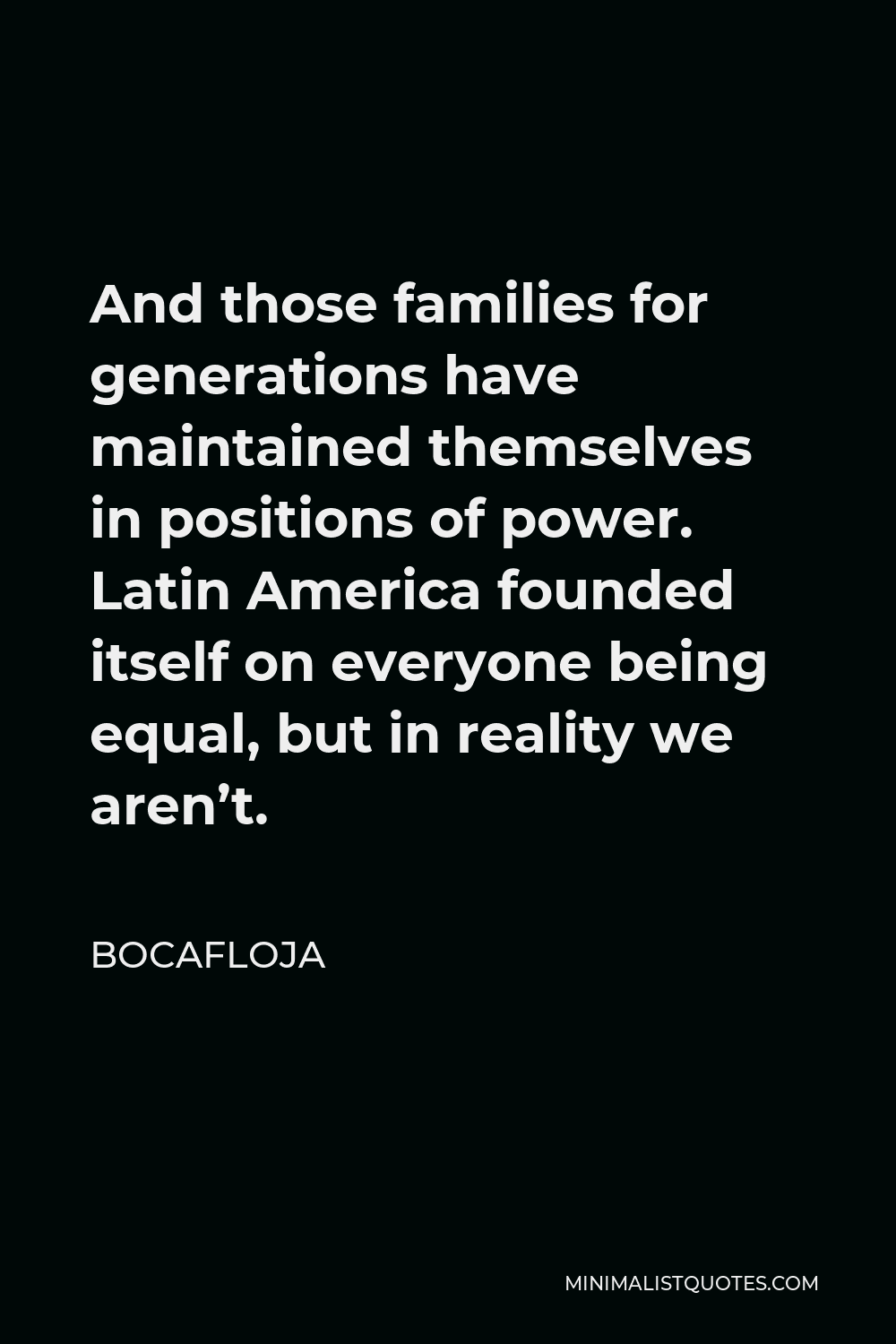
-





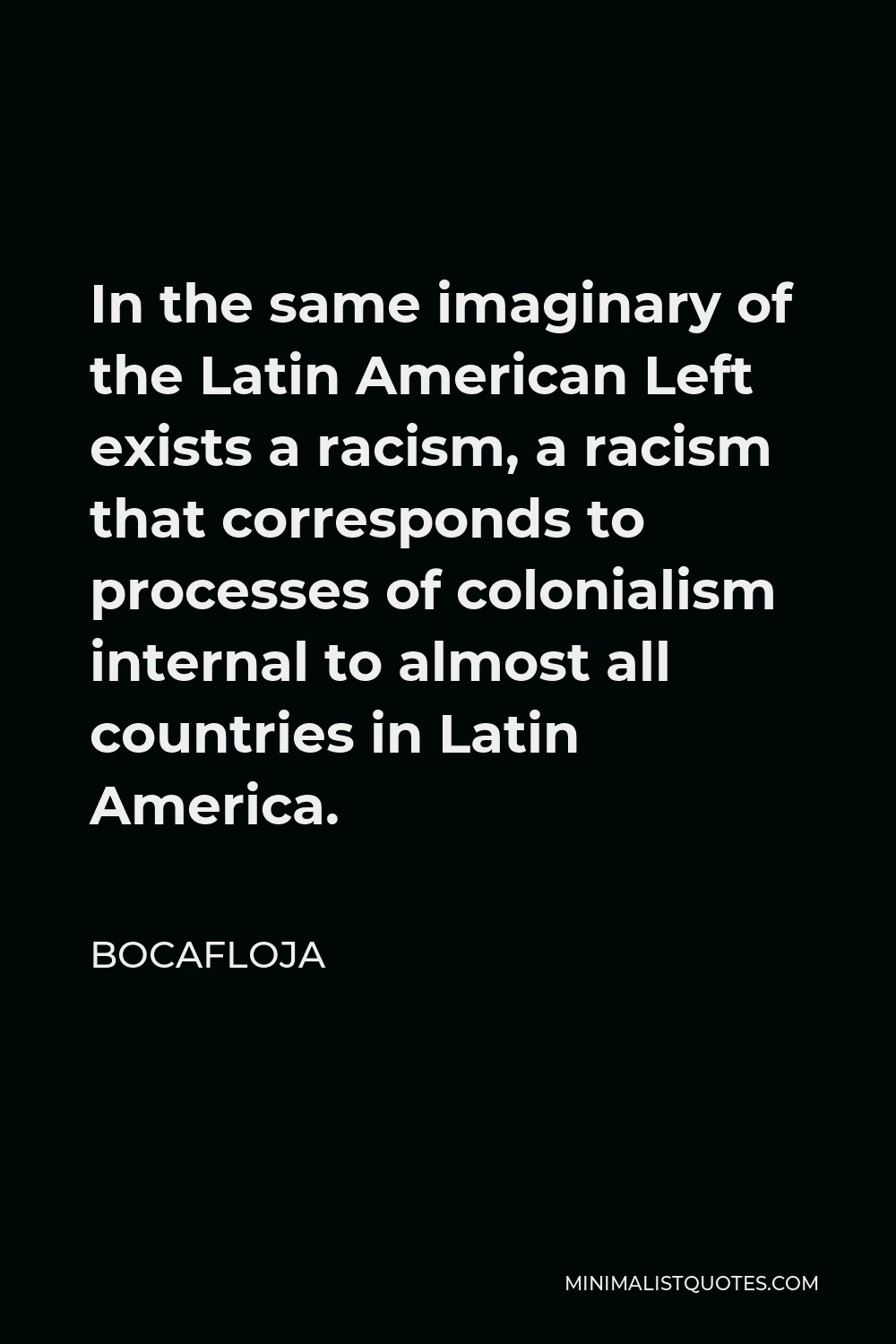
In the same imaginary of the Latin American Left exists a racism, a racism that corresponds to processes of colonialism internal to almost all countries in Latin America.
BOCAFLOJA -





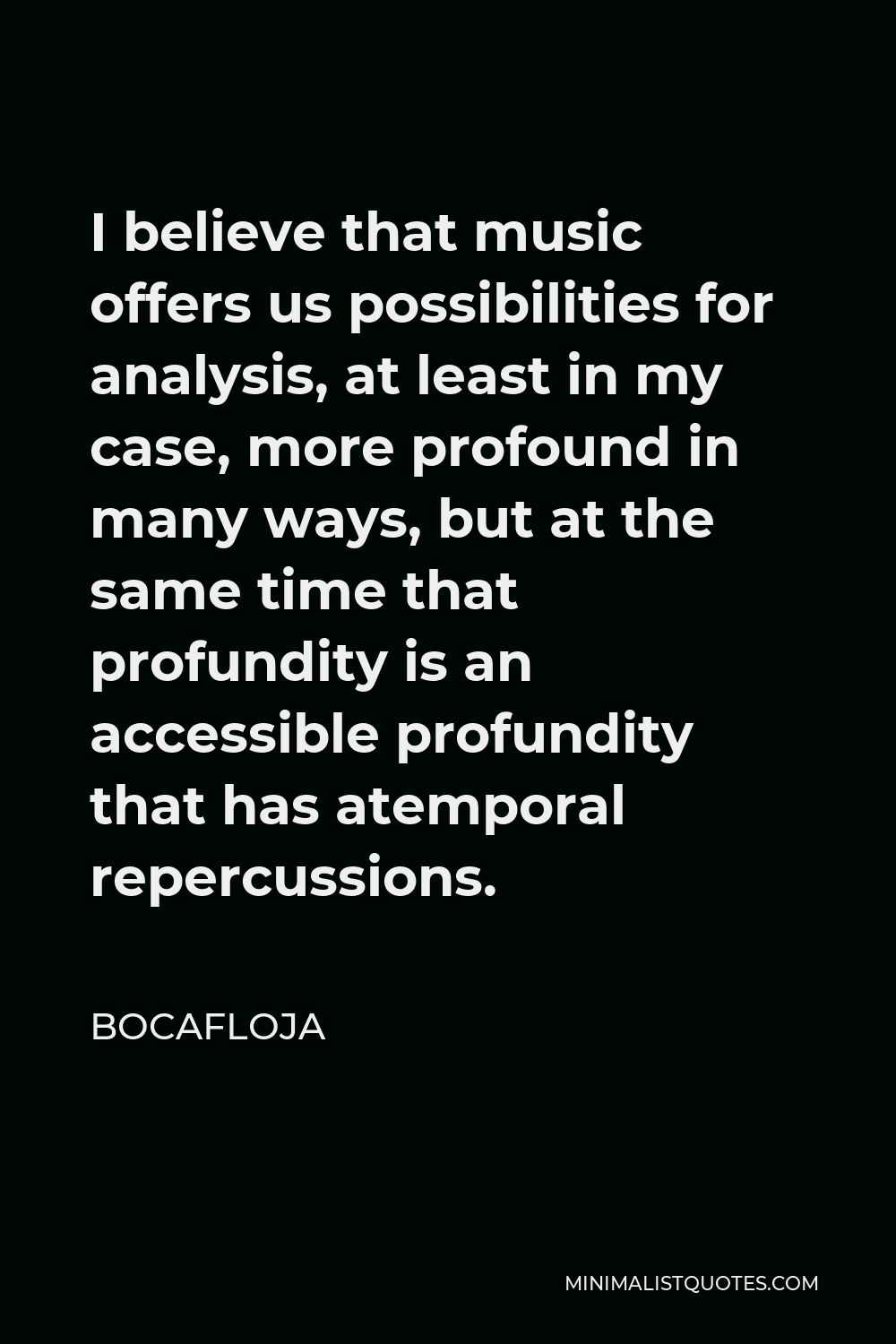
I believe that music offers us possibilities for analysis, at least in my case, more profound in many ways, but at the same time that profundity is an accessible profundity that has atemporal repercussions.
BOCAFLOJA -





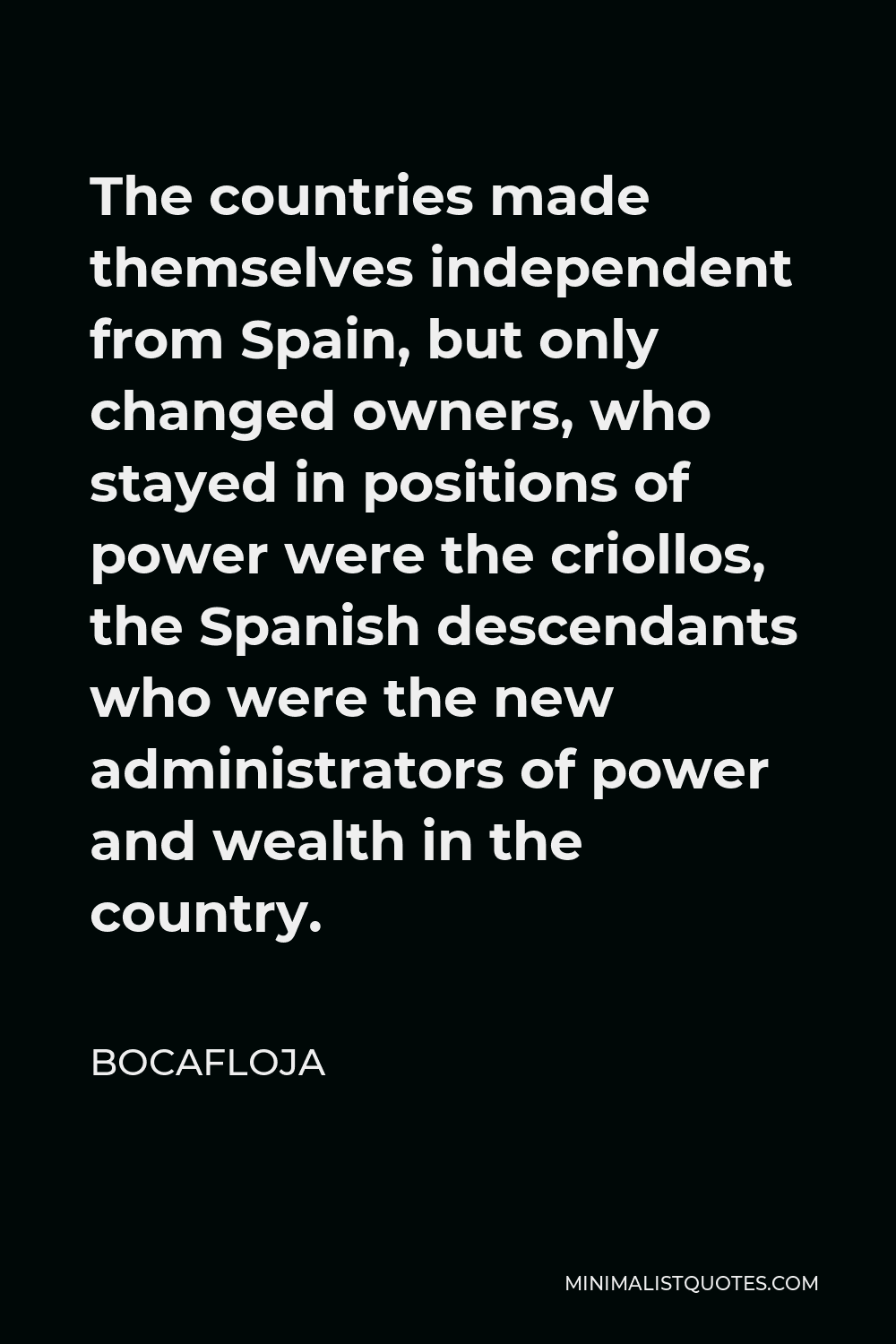
The countries made themselves independent from Spain, but only changed owners, who stayed in positions of power were the criollos, the Spanish descendants who were the new administrators of power and wealth in the country.
BOCAFLOJA -





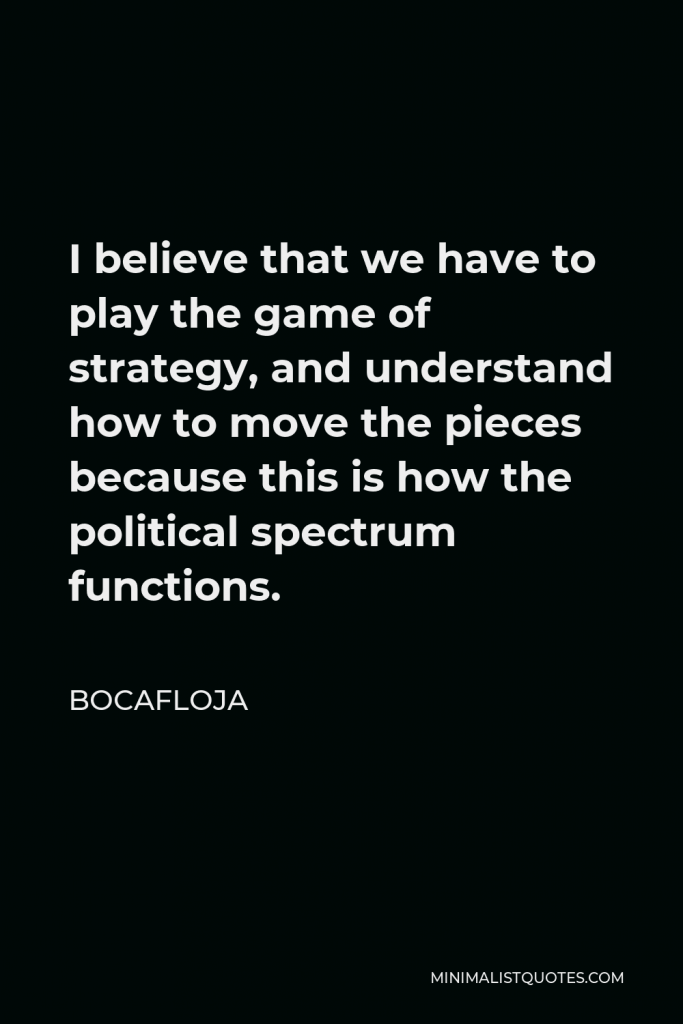

I believe that we have to play the game of strategy, and understand how to move the pieces because this is how the political spectrum functions.
BOCAFLOJA -





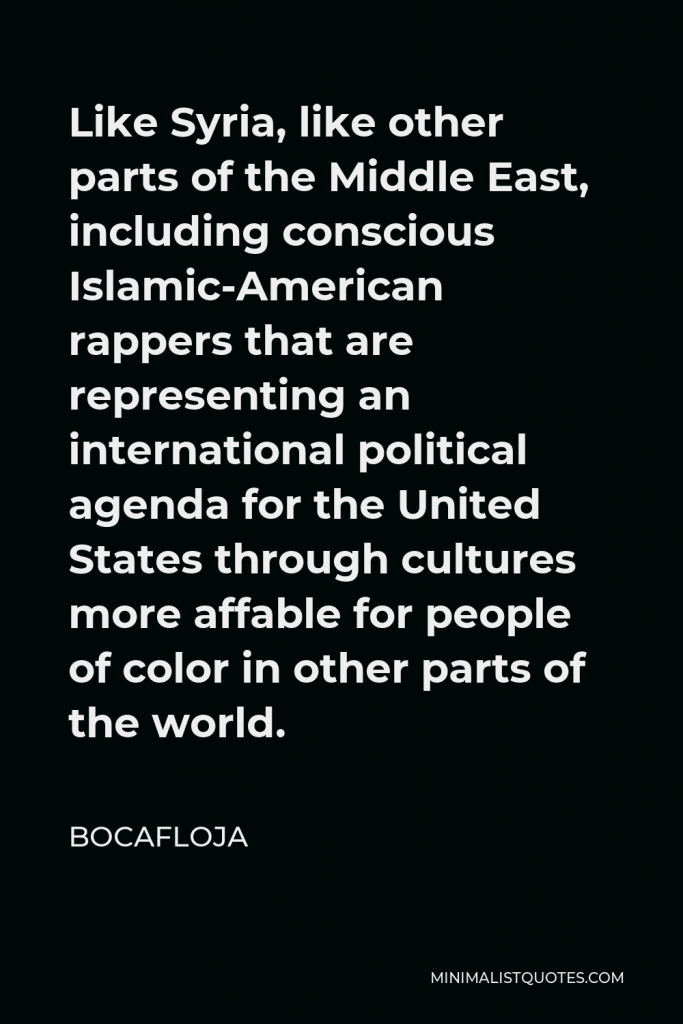

Like Syria, like other parts of the Middle East, including conscious Islamic-American rappers that are representing an international political agenda for the United States through cultures more affable for people of color in other parts of the world.
BOCAFLOJA -





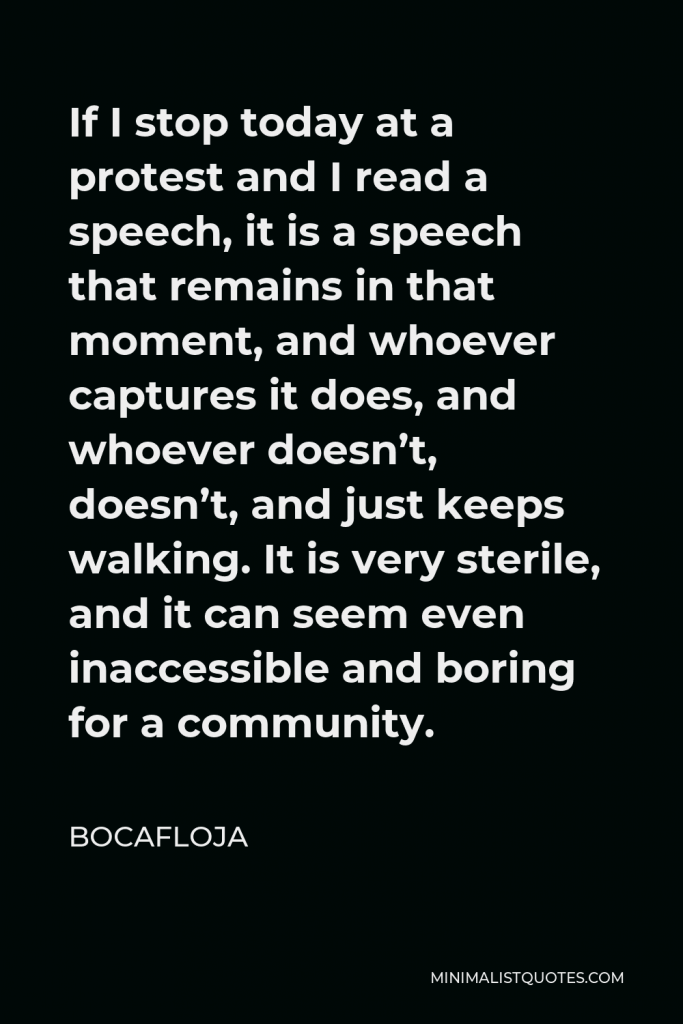

If I stop today at a protest and I read a speech, it is a speech that remains in that moment, and whoever captures it does, and whoever doesn’t, doesn’t, and just keeps walking. It is very sterile, and it can seem even inaccessible and boring for a community.
BOCAFLOJA -






We have to remember that the experience of gangsta rap as such in its foundation is an anti-systemic experience primarily.
BOCAFLOJA -





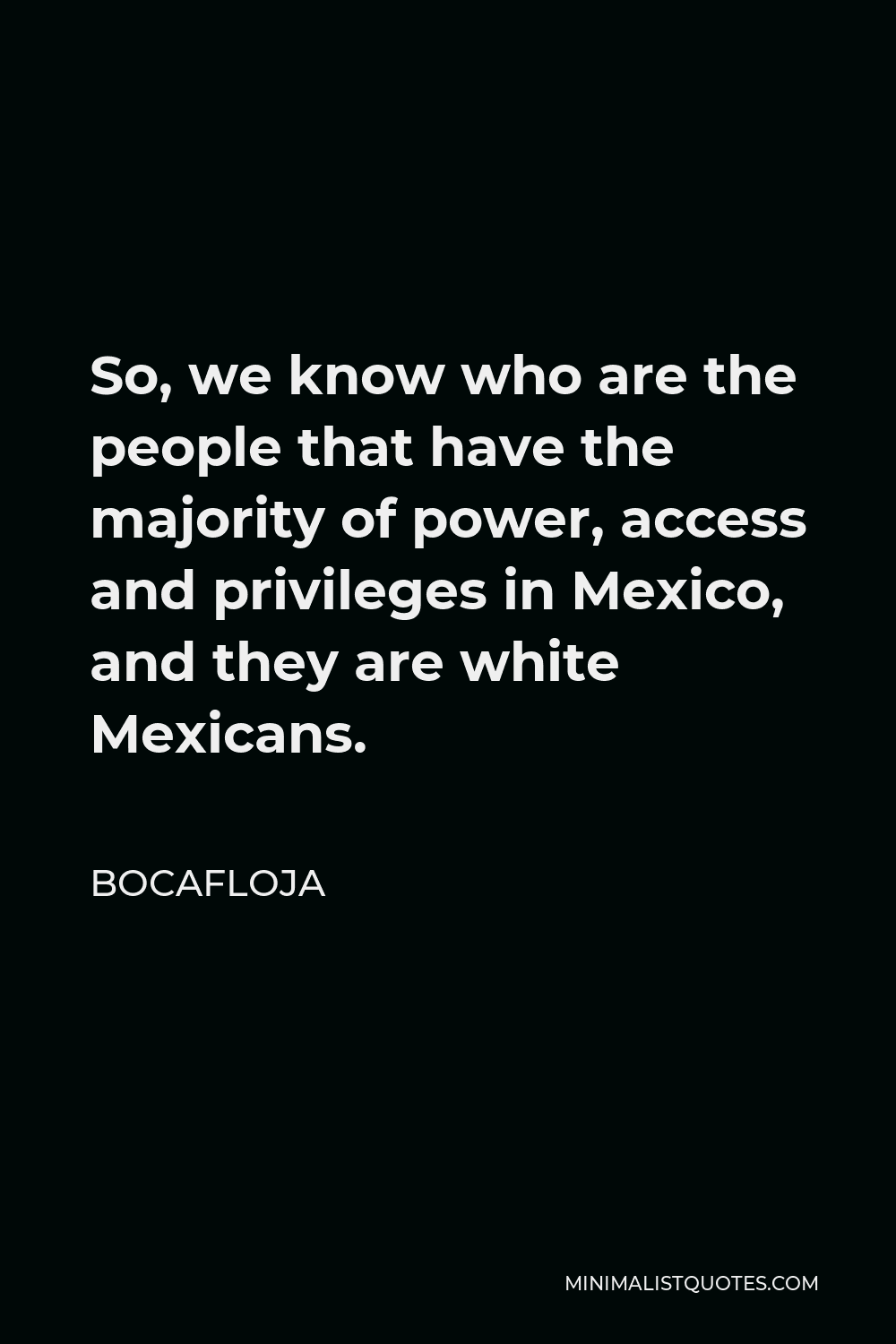
So, we know who are the people that have the majority of power, access and privileges in Mexico, and they are white Mexicans.
BOCAFLOJA -







I believe that also it should be stressed and made clear that our antagonistic position is not to say “I don’t like whites” for the simple fact of not liking white people.
BOCAFLOJA -





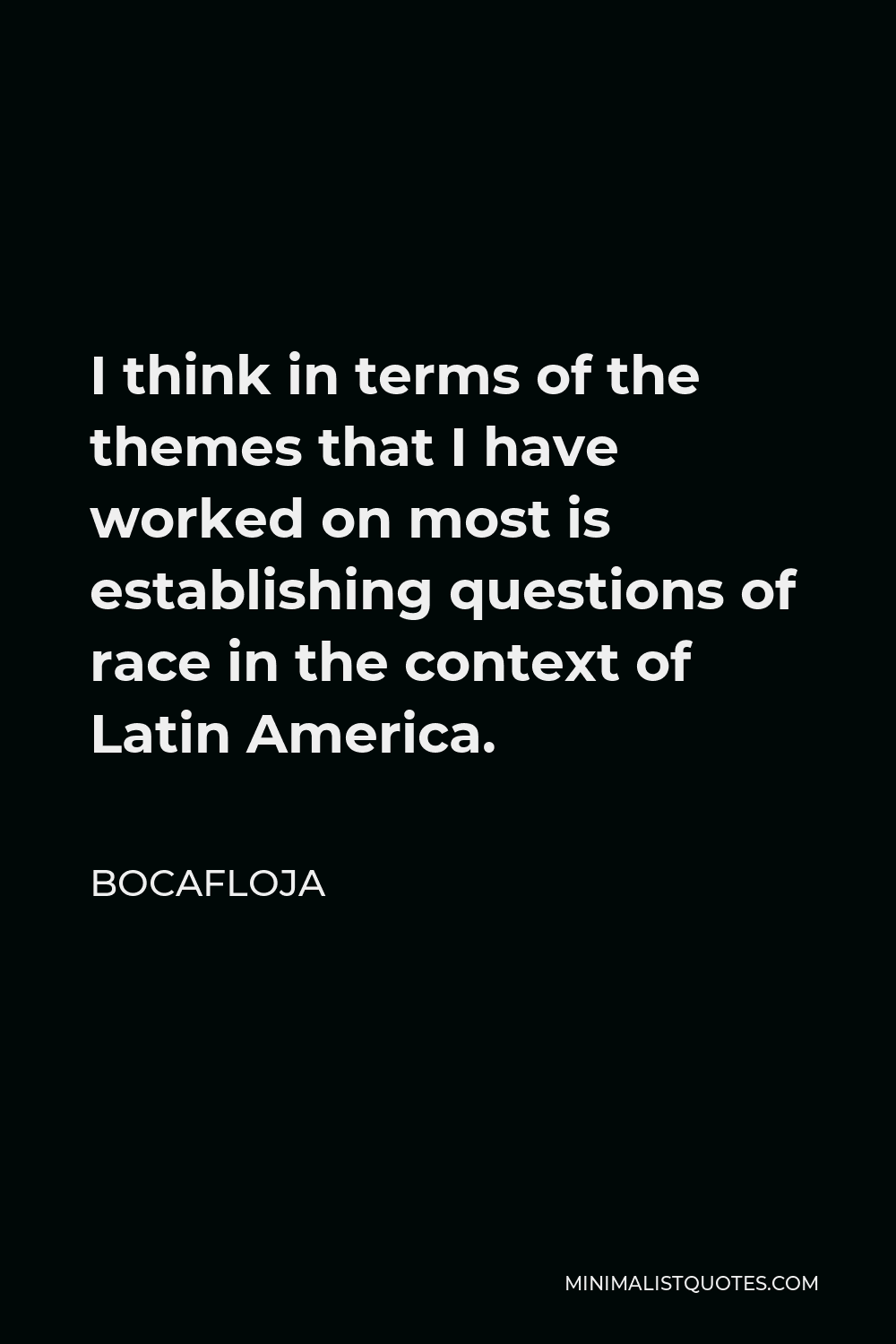
I think in terms of the themes that I have worked on most is establishing questions of race in the context of Latin America.
BOCAFLOJA -





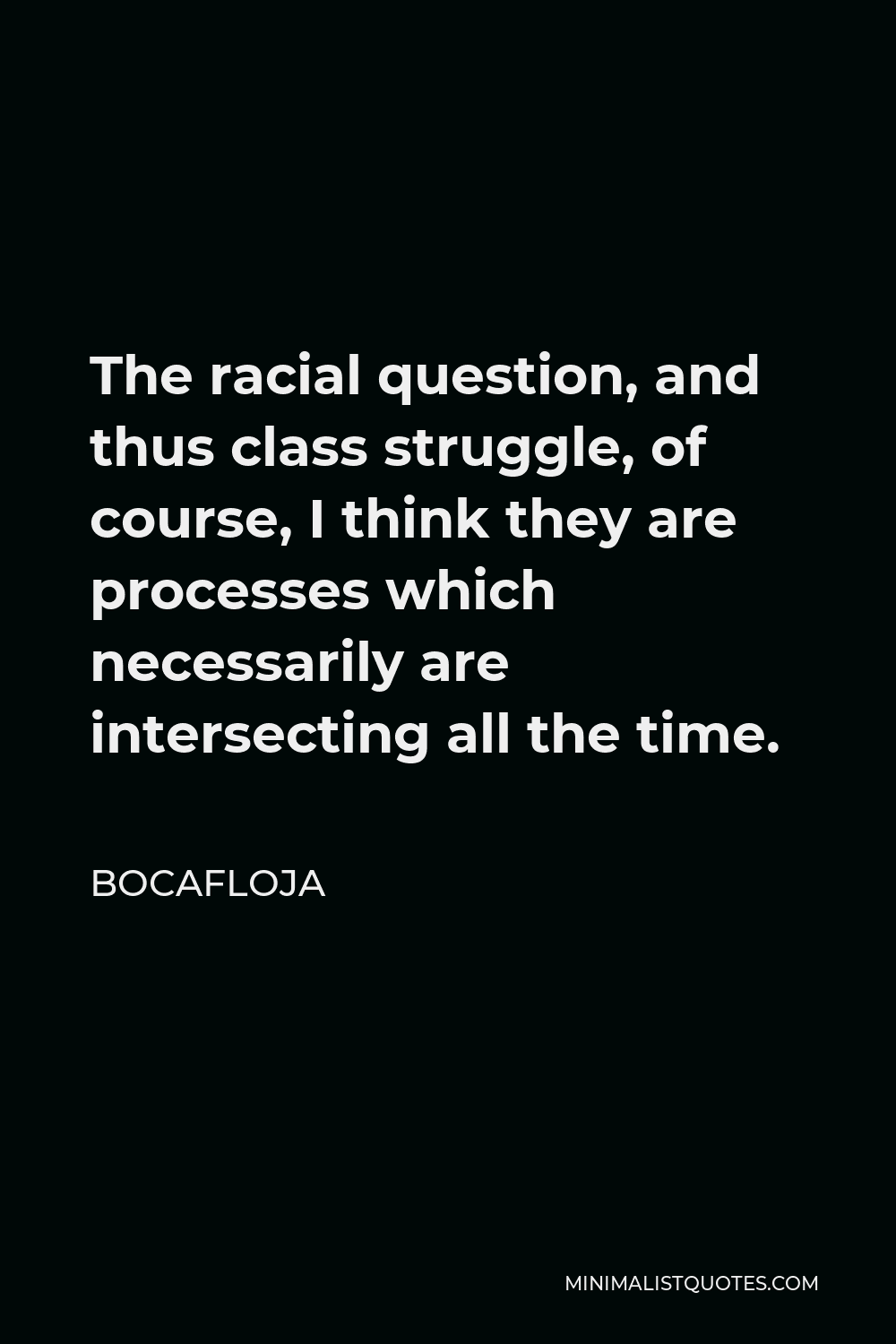
The racial question, and thus class struggle, of course, I think they are processes which necessarily are intersecting all the time.
BOCAFLOJA -






There are situations in which a smile, a laugh, a greeting are racist exercises.
BOCAFLOJA -





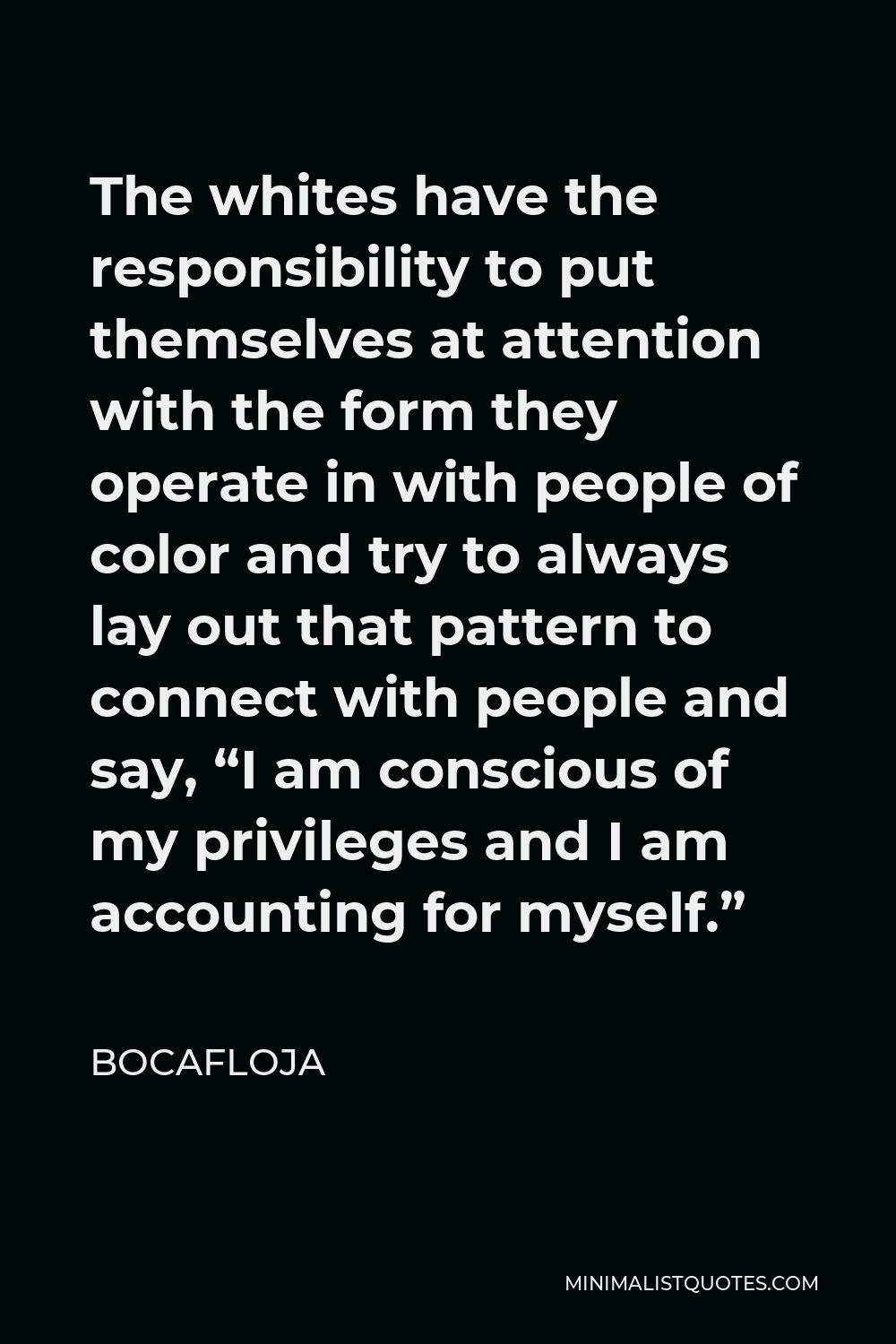
The whites have the responsibility to put themselves at attention with the form they operate in with people of color and try to always lay out that pattern to connect with people and say, “I am conscious of my privileges and I am accounting for myself.”
BOCAFLOJA -






I am conscious of how my body signifies in every space. In every place of the world our body has a different significance.
BOCAFLOJA -






I believe gangsta rap, as such, in its foundation is simply anti-systemic and transgressive.
BOCAFLOJA
